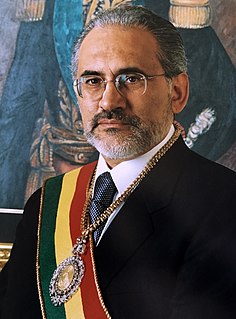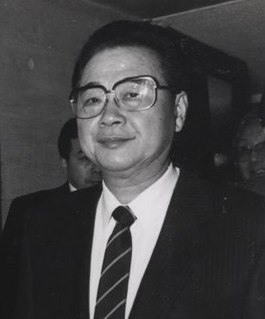A Quote by Carlos Mesa
The cost of pension reforms has been perhaps the biggest error committed in the process of modernizing Bolivia's economy.
Related Quotes
Science advances by trial and error. When mistakes are made, the peer-review publication process usually roots them out. Cuccinelli's version of the scientific process would be "make an error and go to trial." Einstein did not arrive at E=mc2 in his first attempt. If he were working in the state of Virginia under Cuccinelli today, he could be jailed for his initial mistakes and perhaps never achieve that landmark equation.
This separation of government from people, this widening of the gap, took place so gradually and so insensibly, each step disguised (perhaps not even intentionally) as a temporary emergency measure or associated with true patriotic allegiance or with real social purposes. And all the crises and reforms (real reforms, too) so occupied the people that they did not see the slow motion underneath, of the whole process of government growing remoter and remoter.
In 2005, before I was president, the state of Bolivia had only $300 million from hydrocarbons. Last year, 2007, the Bolivian state - after the nationalization, after changing the law - Bolivia received $1,930 million. For a small country with nearly 10 million inhabitants, this allows us to increase the national economy.
Failure's inevitable. It happens all the time in a complex economy. And how did the economy produce all these amazing things that we have around us, computers and cell phones and so on? Well, the process was trial and error. There were a bunch of ideas, and the good ones grew and prospered, and the bad ones were pretty ruthlessly weeded out.











































